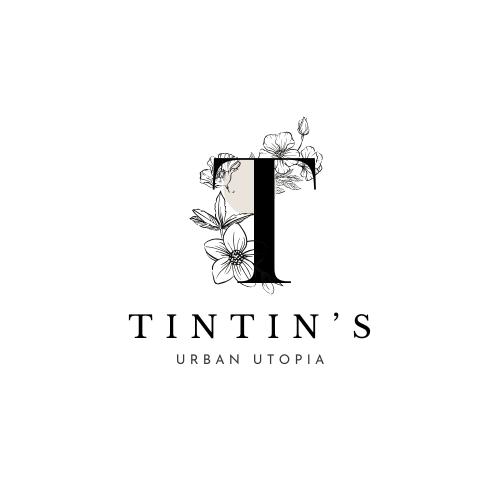Anxious pets are more common than you might think. Whether it's loud noises, vet visits, separation from their favourite humans, or changes in the home environment, anxiety in dogs and cats can show up as restlessness, barking, hiding, pacing, or even tummy upsets. As loving fur parents, watching our pets suffer can be heartbreaking. The good news? You can help your furry friend feel safe, calm, and supported—naturally.
One of the most overlooked but powerful ways to support your pet’s emotional wellbeing is through their gut health, especially with the help of postbiotics.
What Is Pet Anxiety and How Does It Affect Your Dog or Cat?
Pet anxiety is a stress response that can manifest in behavioural or physical symptoms. Dogs may bark excessively, chew furniture, or cling to their humans. Cats may hide, refuse food, or over-groom. Triggers range from fireworks and thunderstorms to being left alone or experiencing a change in routine.
But beneath the surface, there’s something deeper going on.
Recent studies show a strong connection between the gut and the brain—yes, even in animals. It’s called the gut-brain axis, and it plays a major role in regulating mood, stress responses, and overall behaviour. If your pet’s gut microbiome is out of balance, their emotional wellbeing may suffer, too.
Long-Term Pet Anxiety Relief Starts With the Gut
While short-term solutions like calming sprays, thunder jackets, or behavioural training help, many fur parents are now exploring holistic, long-term anxiety relief for pets that starts from the inside out.
That’s where postbiotics for dogs and cats come in.
What Are Postbiotics, and Why Do Pets Need Them?
You've probably heard of probiotics and prebiotics. But postbiotics are the new frontier in digestive and emotional health.
-
Probiotics are live bacteria that support gut flora.
-
Prebiotics are the food that feeds these good bacteria.
-
Postbiotics are the beneficial compounds produced when probiotics digest prebiotics.
These include:
-
Short-chain fatty acids (SCFAs)
-
Enzymes
-
Antioxidants
-
Cell wall fragments
-
Immune-signalling compounds
Unlike live probiotics, postbiotics are shelf-stable and effective even in heat—making them ideal in pet supplements.
And their benefits go far beyond digestion.
How Postbiotics Help With Pet Anxiety
Here's how a postbiotic-rich pet diet helps reduce anxiety and improve quality of life:
1. Supports a Balanced Microbiome
Anxiety often stems from gut dysbiosis—an imbalance in good and bad gut bacteria. Postbiotics help restore harmony in the microbiome, leading to more stable moods.
2. Calms Inflammation
Chronic inflammation in the gut can cause both physical discomfort and behavioural changes. Postbiotics reduce gut inflammation, which is often linked to anxious behaviours in pets.
3. Enhances Neurotransmitter Production
Certain postbiotics influence serotonin production, a feel-good chemical responsible for calm, happy moods. Up to 90% of serotonin is produced in the gut!
4. Strengthens Immunity and Resilience
A healthier gut helps pets cope better with physical and emotional stress. Postbiotics strengthen your pet’s immune system, helping them bounce back faster from anxiety-inducing events.
Signs Your Dog or Cat Could Benefit From a Postbiotic Supplement
Your pet may benefit from daily postbiotics for anxiety relief if they:
-
Shake or hide during storms or loud noises
-
Experience separation anxiety when you leave
-
Bark, whine, or show aggression when nervous
-
Have sensitive stomachs or irregular bowel movements
-
Lick or chew their paws excessively
-
Show less interest in food or play
Choosing the Best Postbiotic Pet Supplement for Anxiety
Not all pet supplements are created equal. Here’s what to look for in a high-quality postbiotic supplement for dogs and cats:
-
Clinically studied postbiotics, like EpiCor® Pets or Butyric acid
-
Multi-functional formula with calming herbs (like chamomile, L-theanine, or ashwagandha)
-
Free from fillers like corn, wheat, soy, or artificial flavours
-
Vet-approved and made in Australia, for peace of mind
-
Duck or chicken flavour for picky eaters
Look for calming chews or powder supplements that your pet enjoys as a daily treat—consistency is key for long-term results.
Natural Calming Strategies Alongside Postbiotics
While postbiotics work from the inside out, you can also try these natural pet anxiety relief strategies to build trust and resilience:
🧘 Create a Calm Safe Space
Use soft blankets, low lights, and calming music to create a ‘zen den’ where your pet can retreat when stressed.
🎾 Use Enrichment Toys and Puzzles
Mental stimulation through treat-dispensing toys or lick mats helps pets focus and feel calm.
👃 Try Natural Calming Scents
Pet-safe essential oils like lavender and chamomile in diffusers or sprays can relax your pet.
👣 Keep a Predictable Routine
Feeding, play, and walk times should stay consistent to help pets feel secure.
Long-Term Wellness: The Role of Diet in Emotional Health
We now know that your pet’s gut isn’t just for digestion—it’s their emotional command centre. What they eat can affect how they feel, act, and sleep. That’s why investing in gut-healthy, postbiotic-rich nutrition is one of the kindest things you can do as a fur parent.
By adding postbiotics to your dog or cat’s daily diet, you’re helping:
-
Improve their stress response
-
Support their digestion and immune system
-
Enhance mood and reduce nervous behaviours
-
Build a stronger, more resilient microbiome
Final Thoughts: You’re Not Alone, and Neither Is Your Pet
Watching your beloved pet struggle with anxiety can be distressing—but it’s not the end of the road. With consistent care, natural remedies, and the right nutritional support, your furry friend can return to the relaxed, happy soul you know and love.
Adding postbiotics to your pet’s anxiety support toolkit is a small change that can make a big difference. Talk to your vet about incorporating a postbiotic supplement into your pet’s daily routine—and watch them thrive.
Because when their tail wags and purrs return, your heart does too. 💛

